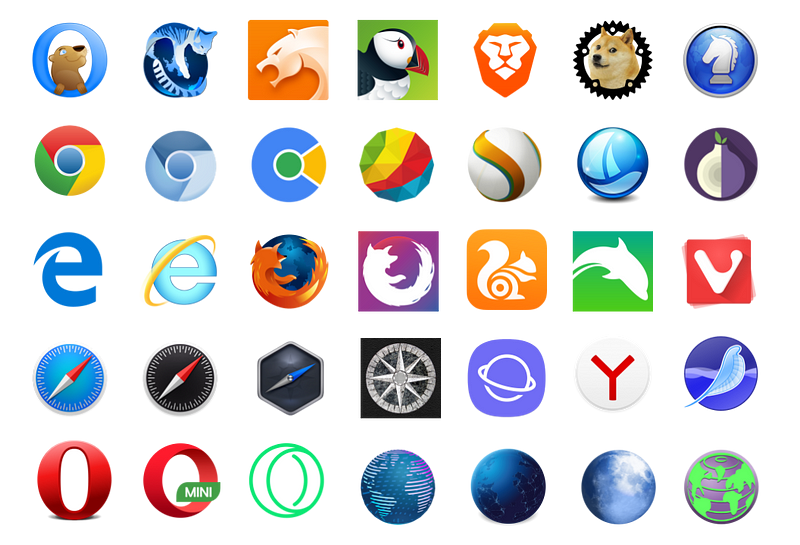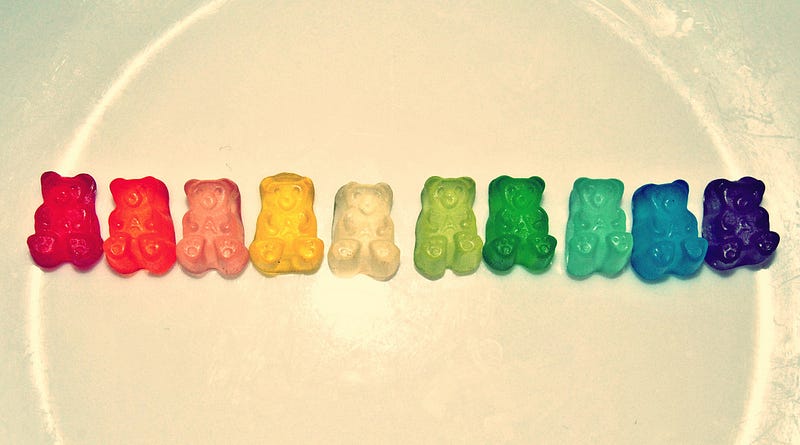Because Browser Diversity Is Good For The Web

Browser logos from github.com/alrra/browser-logos
“Just ask Microsoft to stop working on Edge and we would be fine! Adopt Google Chrome!”
Seeing this tweet yesterday reminded me that a lot of developers still believe the Web would be better if we had One Browser To Rule Them All.
At first, that might sound nice in theory. Less testing! Less inconsistency! Less bugs!
But this is forgetting our users. Would it be good to effectively force them to use a single browser? To deny them the possibility to choose their preferred user interfaces and features? Of course not!
It’s forgetting that competition drives innovation. As a certain Steve Jobs said in 2004:
“What’s the point of focusing on making the product even better when the only company you can take business from is yourself?”
And it’s forgetting how much these different browsers bring to the Web. Microsoft are contributing to many of the web standards that our browsers are relying on — and helping to push the Web forwards.
We sometimes have a similar reaction to our browser Samsung Internet too. People mistakenly imagine that all we’re doing is taking the Chromium project and sticking our own browser interface top. That’s really not the case; Samsung are one of the top contributors into Chromium. (Here’s our list of commits if you’re interested!). We’re also very active in web standards, contributing to specs like Service Workers, Web Payments and WebVR.
These standards are reliant on having participants from different browsers and other interested parties. And it’s these standards that unify browsers and make web development possible. As Diego said in Many Browsers, One Web, we don’t develop for different browsers. We develop for the web.
Not everybody is a web developer
Scott Gilbertson wrote an excellent article about this in (yes) The Register. It’s focused on Firefox, but you can apply the same logic and sentiment to any other browser. Here’s my favourite part (but I encourage you to read it all):
The dream of a single rendering engine is the dream of someone who fails to understand the most fundamental thing about the web — it’s a mess, but it’s a beautiful, flexible, powerful mess.
The web thrives on diversity. It’s the diversity of the web that sustains it and it’s the thing that will mean it’s still around long after all the monocultures, whether they be browsers or Facebooks or Googles, have long since vanished from the online ecosystem.
Diversity of diversities

At Samsung Internet we recognise the benefits of collaborating with a diverse set of people. Diversity of gender, race, national origin, background, abilities… We’re committed to help support diversity in the tech industry, because it makes everything we do better and more inclusive.
I believe that having a diverse set of browsers has similar benefits for the Web — and for similar reasons. It brings different perspectives and ideas. It brings creativity and innovation. It brings inclusivity and accessibility. Whatever features you need from your web client, most likely: there’s a browser for that.
Browser diversity is what makes the Web… the Web
Yes, the Web has its faults, but let’s not take for granted that it’s the most wide-reaching platform in human history. Our planet is connected like never before, with nearly 4 billion active Internet users. The Web is what brings us together, no matter what device we’re using. It’s an incredible achievement and it wouldn’t be what it is today without the availability and contributions of many different browsers.
So what should you say next time you hear someone wish there were fewer browsers around? I’ll leave you with Jake Archibald, whose tweet lent this post its title:
Tagged in Web Development, Browsers, Diversity, Web, Internet
By Peter O’Shaughnessy on June 30, 2017.
